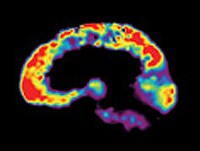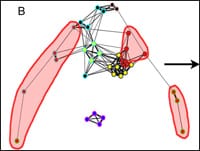Previous research has concentrated on changes to the hippocampus as a predictor of conversion from normal cognition to cognitive impairment, but emerging data suggest that properties of the fornix region of the brain might be better at predicting cognitive decline among healthy elderly people.
A new study, published online September 9 in JAMA Neurology, links fornix body volume and axial diffusivity to cognitive changes, raising the possibility that deterioration in this region of the brain is the first biological sign of cognitive decline.
"When we're looking at very early signals, it seems that we can pick up changes in white matter, ie the fornix, earlier than we can pick up changes in the hippocampus, and that those could be used as predictors of changes for anything in the gray matter ie the hippocampus," said lead author Evan Fletcher, PhD, project scientist, Imaging of Dementia and Aging Laboratory, Department of Neurology, University of California, Davis.


No comments:
Post a Comment